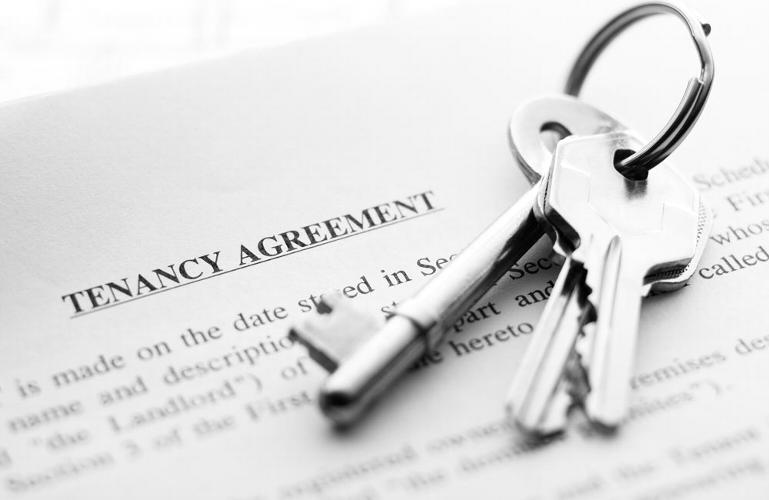A Tenancy Agreement is a vital part of any rent contract
A well-drafted agreement not only outlines the rights and responsibilities of both parties but also provides the foundation for resolving any issues that may arise during the tenancy. At First4LandlordAdvice, we specialise in helping landlords navigate legal complexities, and in this guide, we'll walk you through how to make sure your tenancy agreements are legally sound.
1. Use the Correct Type of Agreement
First and foremost, it's important to use the appropriate type of tenancy agreement for your rental property. In the UK, the most common form is an Assured Shorthold Tenancy (AST), which gives landlords certain protections while offering tenants security of tenure. However, there are other types of tenancies, such as Excluded Tenancies (for lodgers) or Assured Tenancies, which offer different rights.
Before drafting an agreement, ensure you're using the correct type to avoid complications later.
2. Ensure All Mandatory Terms are Included
A tenancy agreement must include specific terms to be legally valid. These terms should be clear, unambiguous, and fair to both parties. Key terms include:
- Names of all parties: Full names of the landlord, tenant(s), and any guarantors.
- Property details: The full address of the rental property, including any communal areas or included furnishings.
- Tenancy start date and duration: Clearly state the start date and the length of the tenancy (fixed term or periodic).
- Rent and payment terms: Include the agreed rent amount, the frequency of payments (weekly, monthly), how payments should be made, and when they're due.
- Deposit information: Detail the amount of deposit required and confirm that it will be protected in a government-approved Tenancy Deposit Scheme (TDS), as legally required.
This helps establish the legal validity of the agreement and avoids issues such as disputes over rent payments or tenancy length.
3. Comply with Legal Requirements and Updates
Landlord-tenant law in the UK is subject to frequent updates, so it's important to stay informed of the latest legal changes. For example, The Tenant Fees Act 2019 limits what fees landlords can charge tenants, and Minimum Energy Efficiency Standards (MEES) place requirements on the energy rating of rental properties.
Landlords must also meet their obligations under legislation such as:
- Right to Rent: Ensure the tenant has the legal right to live in the UK.
- Gas Safety Regulations: Provide tenants with a valid Gas Safety Certificate.
- Electrical Safety Standards: Complete regular electrical inspections and provide reports.
- EPC Requirements: Ensure the property has a valid Energy Performance Certificate.
Make sure your tenancy agreement reflects these legal obligations. For instance, include clauses that specify when gas and electrical inspections will be conducted and how these requirements will be communicated to tenants.
4. Amend Clauses to Your Property and Situation
A legally sound tenancy agreement isn't just about ticking boxes—it should also be tailored to your specific property and the nature of your rental arrangement. You may want to include bespoke clauses that address the following:
- Subletting: Include a clause prohibiting or allowing subletting under certain conditions.
- Pets: Specify whether pets are allowed and, if so, under what conditions.
- Smoking: Indicate whether smoking is prohibited within the property.
- Repairs and Maintenance: Clarify responsibilities for minor repairs and major maintenance, ensuring compliance with the Landlord and Tenant Act 1985, which outlines the landlord's duty to maintain the structure and exterior of the property.
Custom clauses can help manage tenant expectations and prevent disputes over common issues such as property damage or unauthorised occupants.
5. Use Fair and Clear Terms
The terms of your tenancy agreement must be fair and clear. Unfair or misleading terms can render parts of the agreement invalid, leading to potential disputes. For instance, an agreement that demands excessive penalties for late rent or imposes unreasonable restrictions on tenant behaviour could be deemed unenforceable by the courts.
Always aim for clarity—legal jargon or overly complicated language can confuse tenants, which might lead to unintended breaches of the agreement. The terms should be straightforward enough for both parties to understand their rights and responsibilities fully.
6. Include Clauses for Ending the Tenancy
It's essential to clearly outline how and when the tenancy can end, ensuring that your agreement complies with UK law. For fixed-term tenancies, include a break clause if you want the option of ending the tenancy early. Be sure to specify how much notice is required (usually two months for Section 21 notices) and under what circumstances the tenancy can be terminated early.
For periodic tenancies, clarify how tenants can give notice and ensure you follow the appropriate legal procedures, including Section 8 and Section 21 notices if you need to regain possession of the property.
7. Get the Agreement Signed and Stored Correctly
Once your tenancy agreement is drafted, it must be signed by all parties involved. Both the landlord and tenant should have the opportunity to read and understand the terms before signing. Once signed, ensure that:
- All parties receive a copy of the agreement.
- The agreement is stored securely, either digitally or as a hard copy.
- A backup copy is kept in case the original is lost or damaged.
Landlords should also ensure that they provide tenants with other legally required documents, such as the How to Rent guide, the EPC, and the Gas Safety Certificate, at the start of the tenancy.
8. Review and Update the Agreement Regularly
Even if you have a legally sound tenancy agreement in place, it's important to review and update it regularly to reflect changes in the law or your property's needs. Circumstances may change, such as updated fire safety regulations or tenant fee rules, so your tenancy agreements should always be current.
At First4LandlordAdvice, we recommend reviewing your agreements at least once a year or whenever there is a significant change in legislation.
